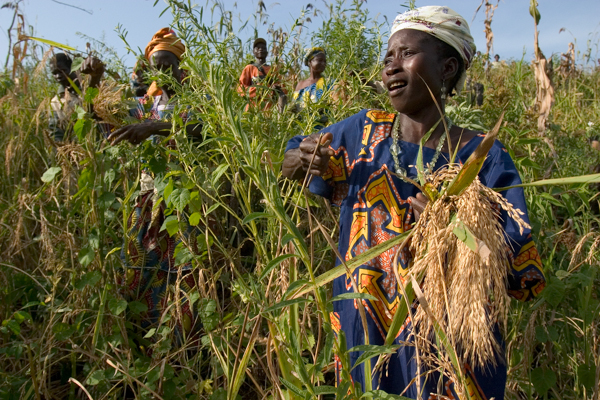
Villagers harvest rice in Sierra Leone. Harvesting is often a communal affair in West African nations, but the Ebola crisis interfered with group activities and disrupted many other aspects of agricultural production in the region. Photo credit: ©FAO/Peter DiCampo.
mongabay.com - by Lois Parshley - June 25, 2015
Pedelers Salee Craig used to grow vegetables. Near his home in Monrovia, Liberia, he planted peppers and bitter balls, potatoes and okra. A sturdy 39 year-old man with cheeks etched from former smiles, Craig is passionate and generally optimistic.
But he's not smiling when he talks about the situation in Liberia now. Typically, farmers work to gather crops communally, harvesting together until the season is over. But in 2014, the Ebola crisis restricted travel.
"Everyone was afraid of each other," Craig said. Mandatory government quarantines trapped people within their homes. As the disease spread, fields went unharvested and soon lay fallow.
Recent Comments